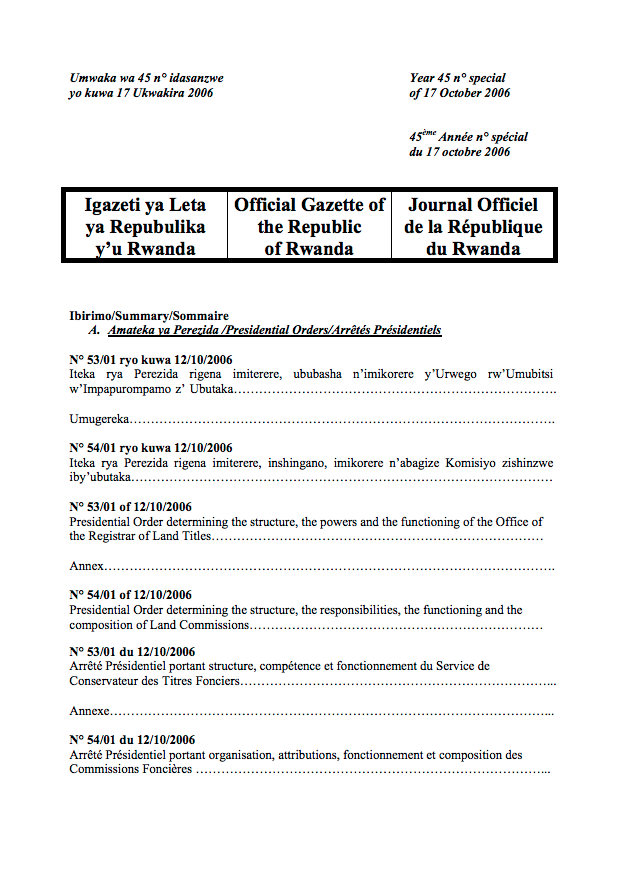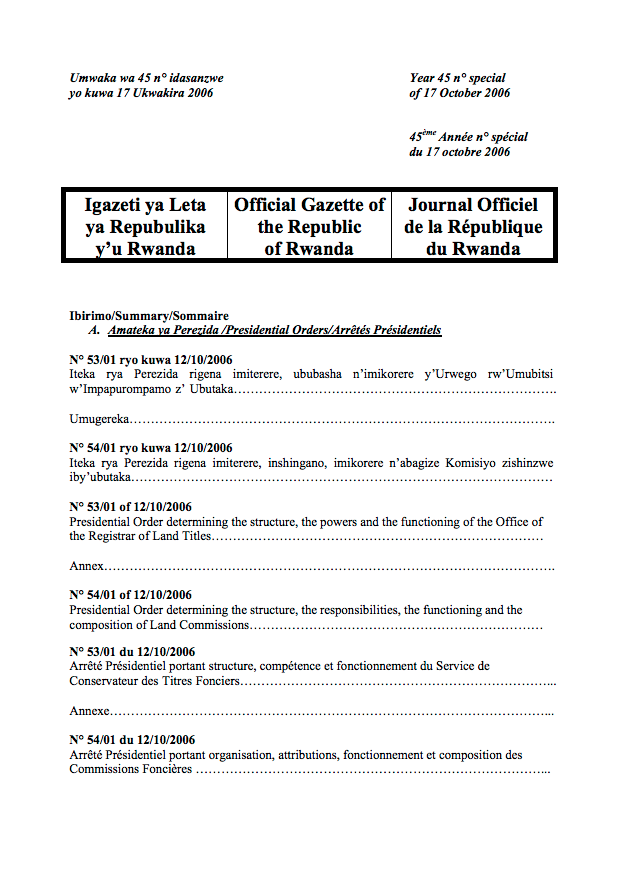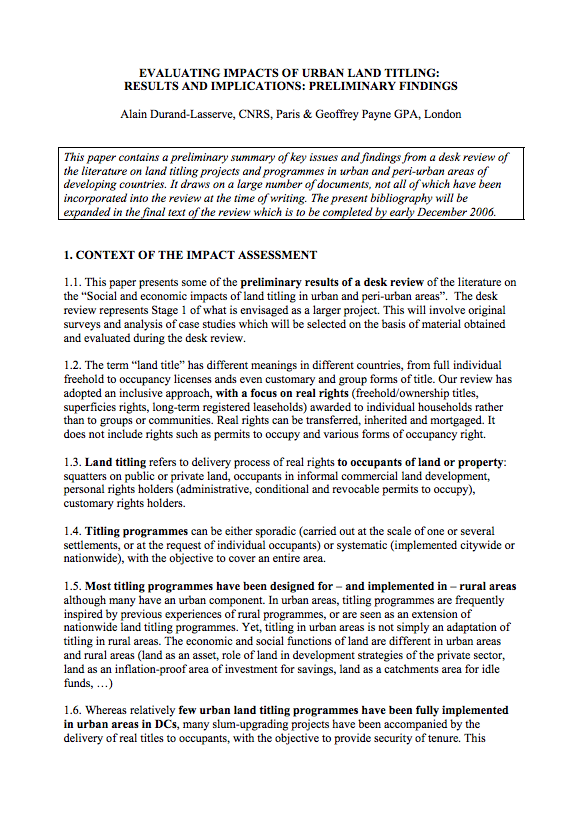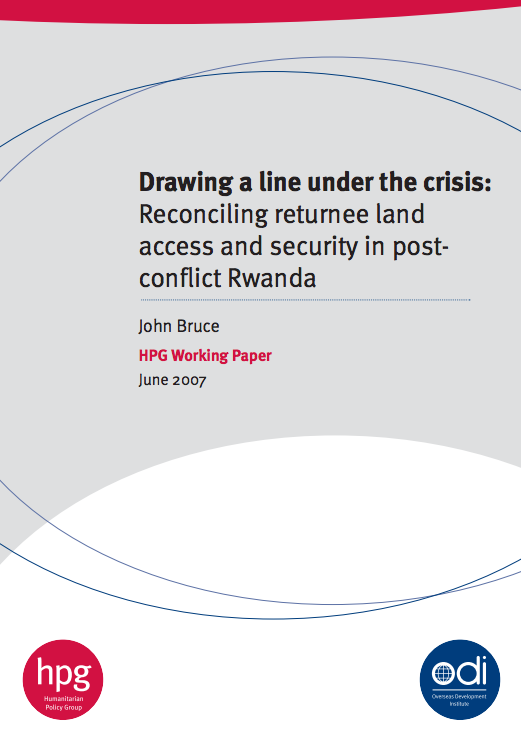Presidential Order N° 54/01 of 12th October 2006 Determining Structure, Responsibilities, Functioning and Composition of Land Commissions.
Published on the 17 October 2006.
Prime Minister’s Order N° 17/03 of 9 October 2006 Establishing the Task Force in Charge of Land Reform and Management in Rwanda.
Published on the 17 October 2006.
This paper contains a preliminary summary of key issues and findings from a desk review of
the literature on land titling projects and programmes in urban and peri-urban areas of
developing countries. It draws on a large number of documents, not all of which have been
…
Research findings include: land rights in marriage and during cohabitation; daughters and inheritance rights; land disputes; land administration and registration; education and monitoring implementation of the Land Law.
In Rwanda, two factors make land a highly important and contested issue. First,
Rwanda has the highest person-to-land ratio in Africa. This creates tremendous
pressure on land in a country where most of the population lives in rural areas, and
where agriculture remains the…
Faced with a serious land crisis, the Rwandan government adopted a new national land law and policy. These measures are part of a long historical process of expansion of state control over property, including land and cows. The Government cites security of tenure as the primary objective of the…
This report is part of a broader comparative effort by As the author worked with colleagues in Rwanda,
two other important dimensions of the Rwandan
experience became clear. Refugee return and land
access in Rwanda has been an extraordinarily
complex matter, with some…
Case study includes conceptual framework, rationale for land reform in Rwanda, assessment of choices, implementation. Highlights from the thematic dialogue include discussions on participation, decision making for optimal land use, land and the rural-urban interface and livelihoods, lessons…
The paper is a product of a short term consultancy work offered by Food and Agriculture Organization of the United Nations (FAO) for the Ministry of Lands, Environment Forestry, Water and Mines of Rwanda. The paper focuses on the relationship between land reform, poverty reduction and…
The paper is a product of a short term consultancy work offered by Food and Agriculture Organization of the United Nations (FAO) for the Ministry of Lands, Environment Forestry, Water and Mines of Rwanda. The paper focuses on the relationship between land reform, poverty reduction and…
Many authors contend that ethnic extremism coupled with political manipulation were the primary factors behind the Rwandan genocide. Yet, to oversimplify the cause of this tragedy makes one blind to the complicated nexus that generated the outcome. Even though this genocide was quick in its…
More than eleven years after the 1994 genocide, Rwanda might be an internally pacified, but by far not unified nation. There are different factors, which threaten the fragile social equilibrium. The issue of land is one of them. Land has long been a scarce and disputed resource in Rwanda.…







